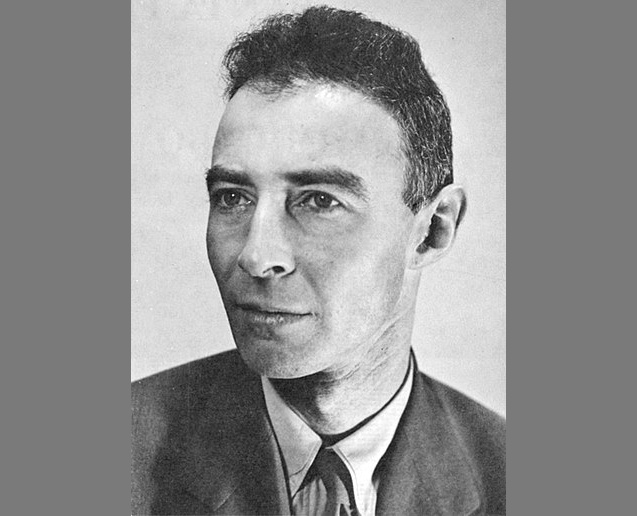
Leo Szilard and Edward Teller contributed largely to the creation of the destructive weapon, the atomic bomb.Continue reading
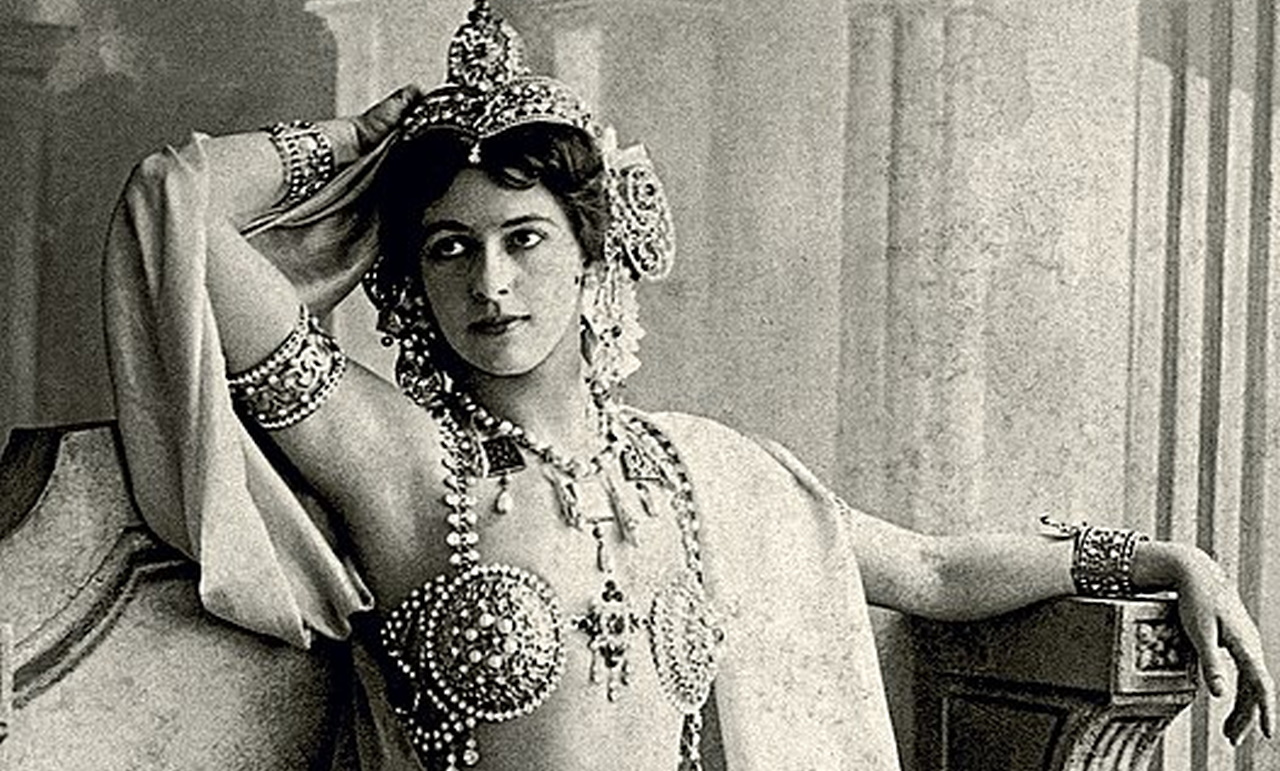
Margaretha Geertruida Zelle was born on August 7, 1876 in Leeuwarden, the Netherlands, and became known to the world as Mata Hari, an exotic dancer of Indian origin. Although studies have appeared claiming her innocence, at the time she was accused of spying for Germany and the Austro-Hungarian monarchy.
She studied to be a kindergarten teacher in Leiden, but when the headmaster began to flirt with her conspicuously, she was removed from the institution by her godfather. Then, at 18, she met Dutch Colonial Army Captain Rudolf MacLeod through a newspaper advertisement, and they were soon married. However, the marriage was neither happy nor long-lasting: MacLeod drank severely, cheated on and beat his wife, who eventually left him after seven years.
Then began Margaretha Geertruida Zelle’s eventful life and dizzying career. She took on a new name and created an exotic past for herself, one in which there was little mention of her Dutch ancestry or husband.
As Mata Hari, she won the hearts of men as an Indian dancer and courtesan.
Thanks to her stunning looks and her uniquely erotic dancing, exclusive salons in Paris, Vienna, Milan, and Berlin opened their doors to her. By the early 1910s, she was Europe’s most sought-after courtesan.
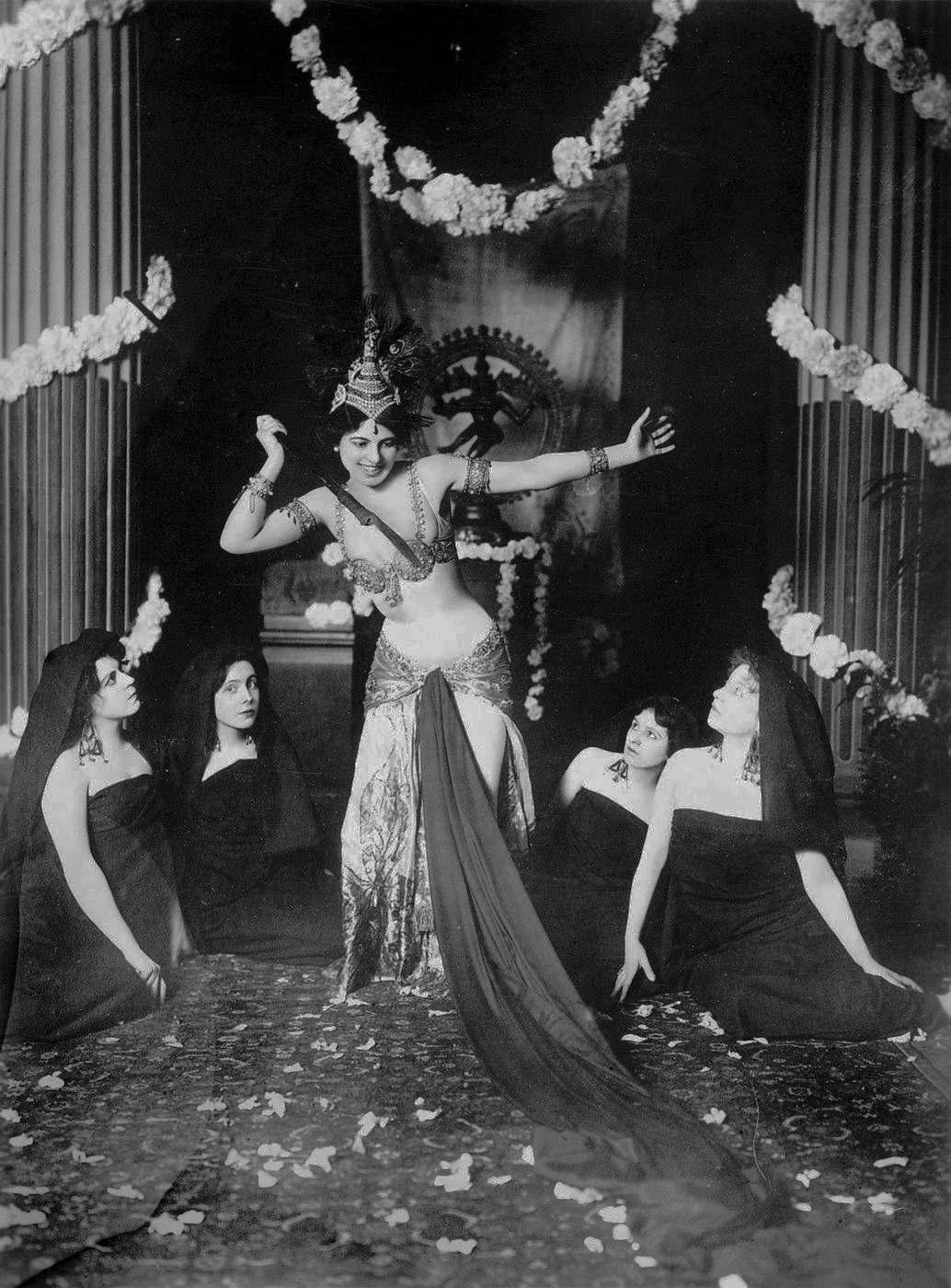
Mata Hari dancing. Photo: Wikimedia Commons
By 1904, Mata Hari rose to prominence as an exotic dancer.
Promiscuous, flirtatious, and openly flaunting her body, she captivated her audiences and was an overnight success from the debut of her act at the Musée Guimet on March 13, 1905.
She posed as a Javanese princess of priestly Hindu birth, pretending to have been immersed in the art of sacred Indian dance since childhood. She was photographed numerous times during this period, nude or nearly so.
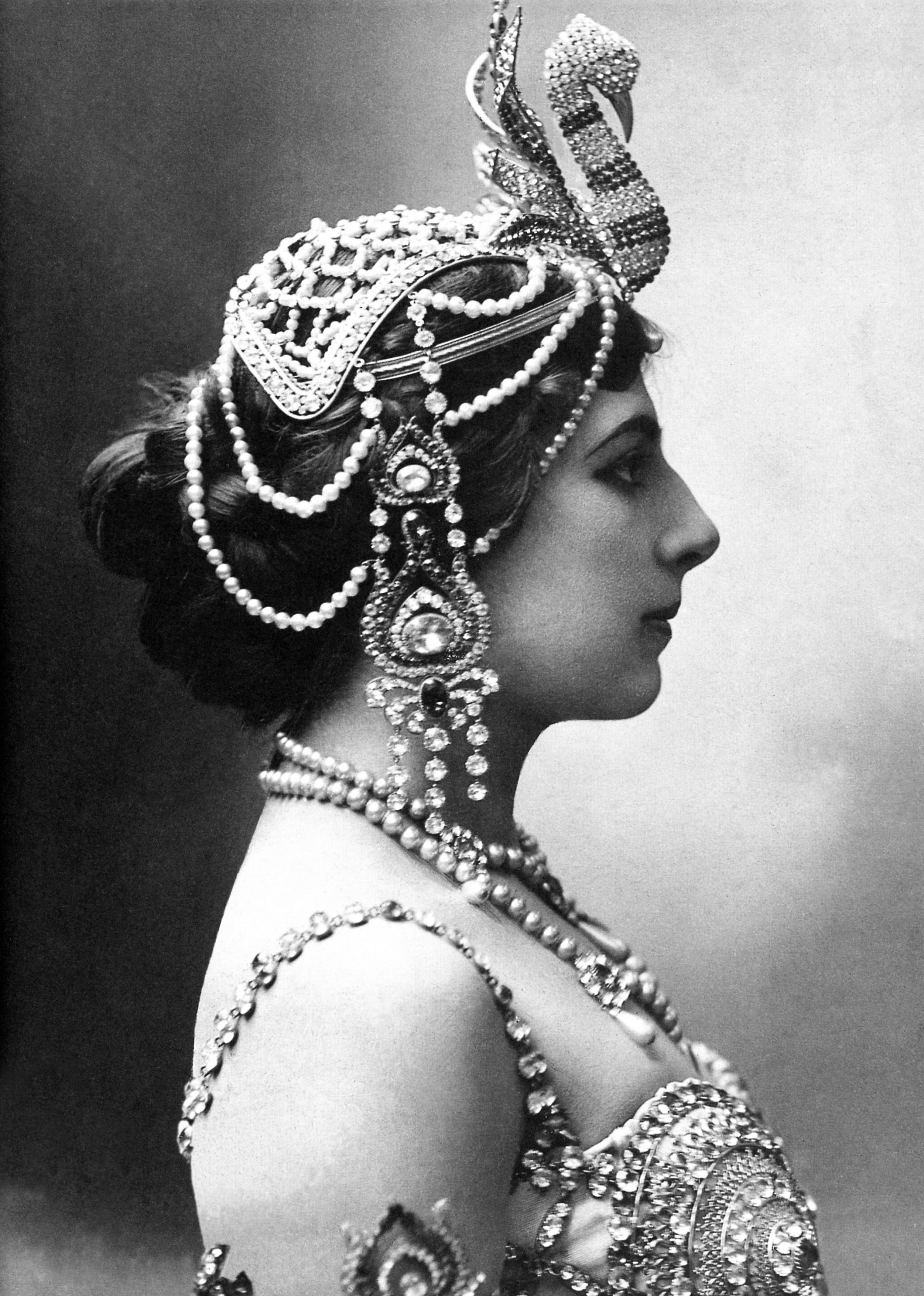
Photo: Wikimedia Commons
However, her reputation began to fade during the First World War. The Netherlands remained neutral in the war, and as a Dutch subject, Zelle was able to cross national borders freely, but her movements inevitably attracted attention. During the war, she was involved in what was described as a very intense romantic-sexual relationship with Captain Vadim Maslov, a 23-year-old Russian pilot serving with the French.
In the summer of 1916, Maslov was wounded, leading Zelle to ask for permission to visit her lover at the hospital where he was staying near the front.
As a citizen of a neutral country, Zelle would not normally be allowed near the front, but was met by agents from the Deuxième Bureau who told her that she would be allowed to see Maslov if she agreed to spy for France.
Before the war, Zelle had performed as Mata Hari several times before the Crown Prince Wilhelm, eldest son of Kaiser Wilhelm II and nominally a senior German general on the Western Front. Because of that, the Deuxième Bureau believed she could obtain information by seducing the Crown Prince for military secrets, and offered her 1 million francs if she could seduce him and provide France with good intelligence about German plans.
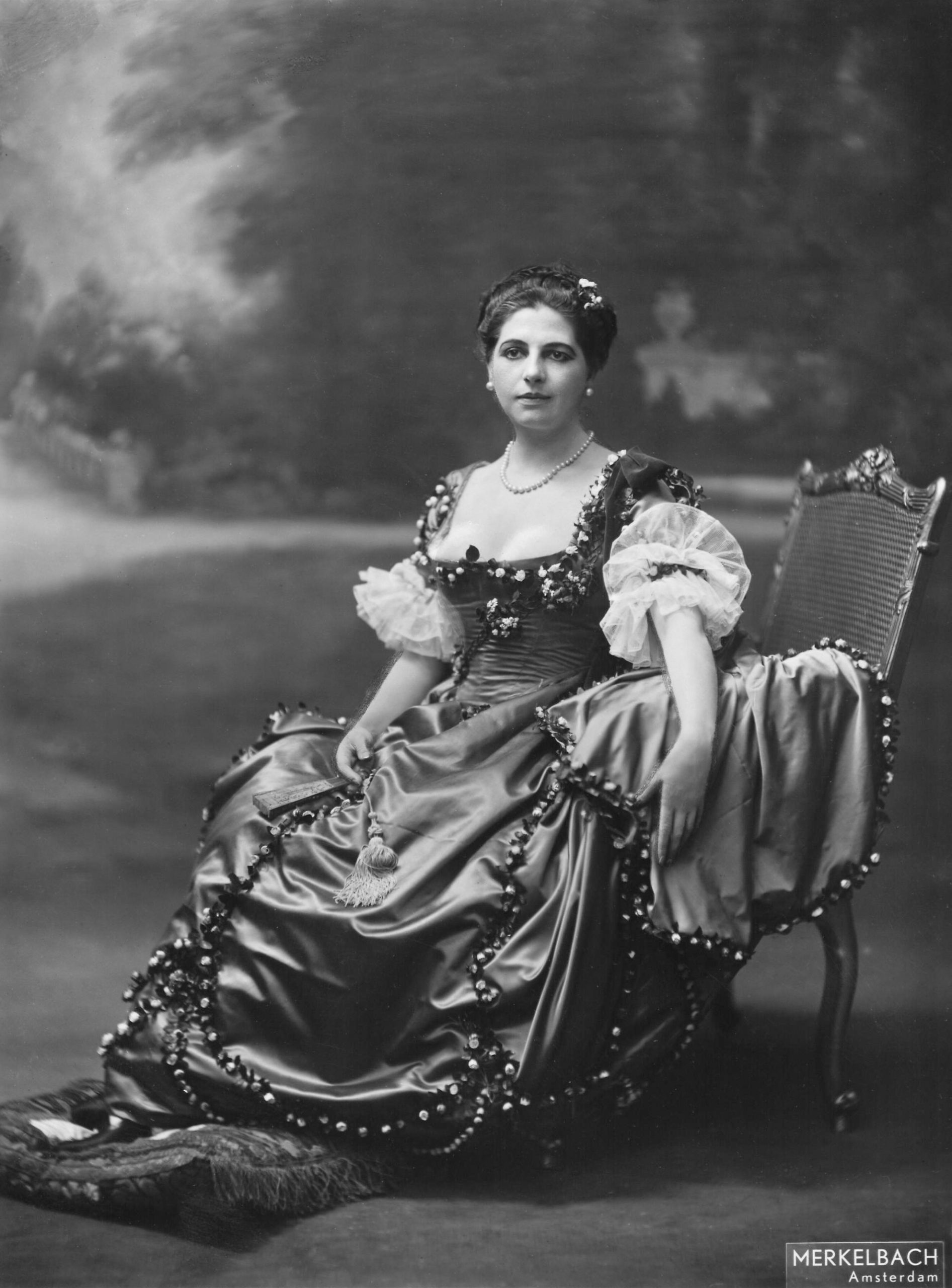
Mata Hari’s career went into decline after 1912, and she had started putting on weight. However, by this time, she had become a successful courtesan, known more for her sensuality and eroticism than for her classical beauty. She had relationships with high-ranking military officers, politicians, and others in influential positions in many countries. Photo: Wikimedia Commons/ Jacob Merkelbach
However, this did not materialize, and in late 1916, Zelle apparently offered to share French secrets with Germany in exchange for money, though the reasons behind this remains unclear.
In 1917, the French started to suspect her of being a double agent, and eventually accused her of spying for the Germans.
In February 1917, Mata Hari was arrested by the French authorities and imprisoned in Saint Lazare prison. On July 24, 1917, a court martial found the dancer guilty and sentenced her to death by firing squad. Although Mata Hari hoped for a reprieve until the last moment, this did not materialize and she was led before a firing squad on October 15, 1917.
The idea of a beautiful exotic dancer using her powers of seduction as a spy made her name synonymous with the femme fatale.
Her story has served as an inspiration for many books, films, and other works. It has been said that she was convicted and condemned because the French Army needed a scapegoat, and that the files used to secure her conviction contained several falsifications. Some have even stated that Mata Hari could not have been a spy and was innocent.
The famous ‘spy’ was played by Hungarian actress and socialite Zsazsa Gabor in the 1972 movie Up the Front.
Featured photo via Wikimedia Commons